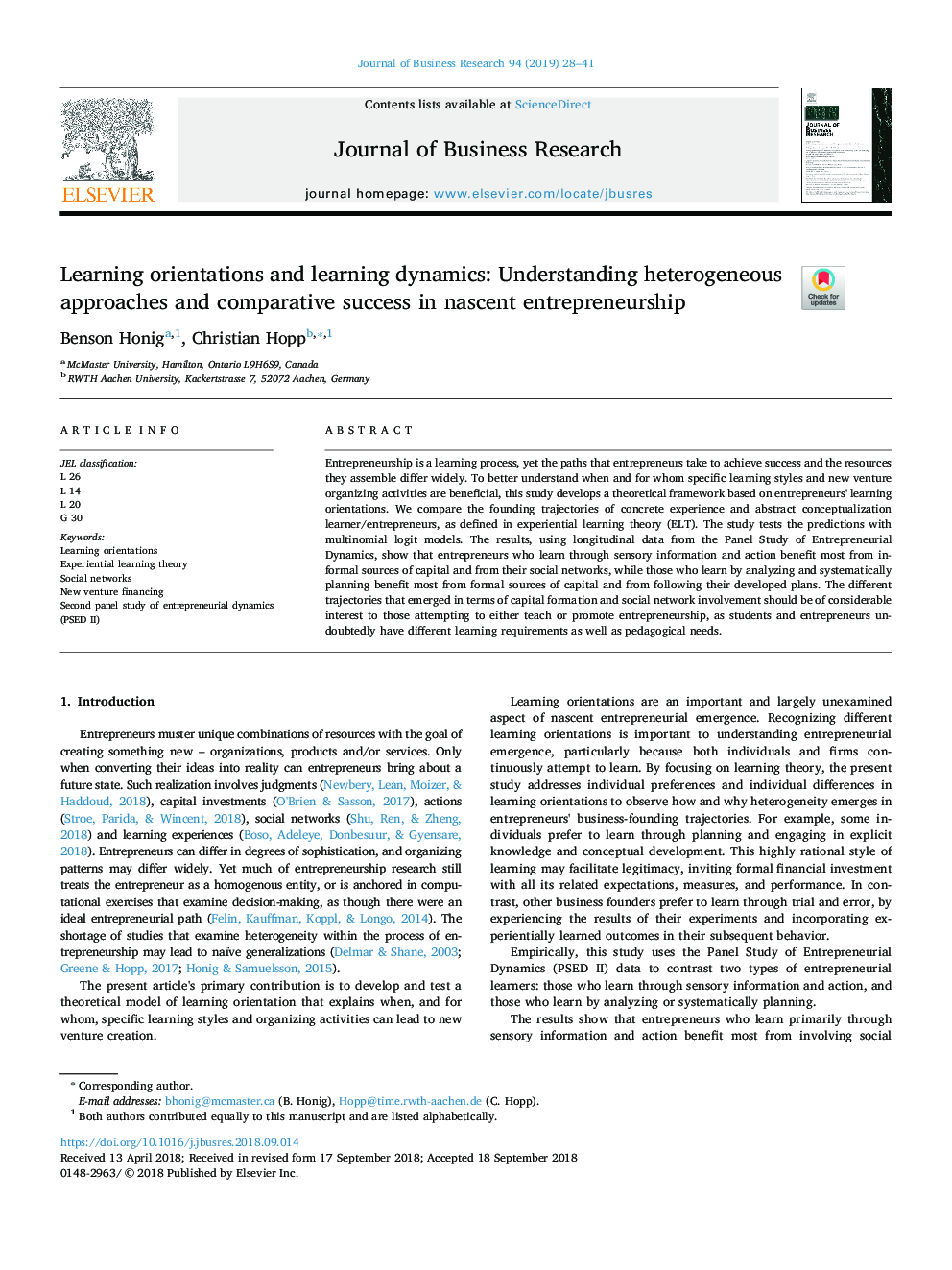| Article ID | Journal | Published Year | Pages | File Type |
|---|---|---|---|---|
| 11020423 | Journal of Business Research | 2019 | 14 Pages |
Abstract
Entrepreneurship is a learning process, yet the paths that entrepreneurs take to achieve success and the resources they assemble differ widely. To better understand when and for whom specific learning styles and new venture organizing activities are beneficial, this study develops a theoretical framework based on entrepreneurs' learning orientations. We compare the founding trajectories of concrete experience and abstract conceptualization learner/entrepreneurs, as defined in experiential learning theory (ELT). The study tests the predictions with multinomial logit models. The results, using longitudinal data from the Panel Study of Entrepreneurial Dynamics, show that entrepreneurs who learn through sensory information and action benefit most from informal sources of capital and from their social networks, while those who learn by analyzing and systematically planning benefit most from formal sources of capital and from following their developed plans. The different trajectories that emerged in terms of capital formation and social network involvement should be of considerable interest to those attempting to either teach or promote entrepreneurship, as students and entrepreneurs undoubtedly have different learning requirements as well as pedagogical needs.
Related Topics
Social Sciences and Humanities
Business, Management and Accounting
Business and International Management
Authors
Benson Honig, Christian Hopp,
